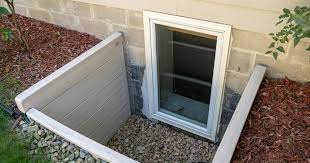Ventilating a basement is important for many reasons, including reducing humidity, preventing mold growth, and improving indoor air quality. Here are some steps you can take to effectively ventilate your basement:
Assess your current ventilation situation:
The first step in ventilating your basement is to assess your current situation. Does your basement have any windows or other openings? If so, are they functional and able to be opened? Are there any existing ductwork or ventilation systems in place? Understanding your current situation will help you identify what steps you need to take to improve ventilation.
Install windows or vents:
If your basement does not have any windows or vents, you will need to install them to improve ventilation. Windows and vents allow fresh air to enter your basement and can help reduce humidity and odors. When selecting windows or vents, look for options that are designed for basements, as they will typically have features like weatherstripping and screens to help keep out insects and debris.
Seal any gaps or cracks:
Even if your basement has windows or vents, it’s important to make sure that there are no gaps or cracks where air can leak in or out. Use caulk or weatherstripping to seal any gaps around windows or doors, and use expanding foam to fill any larger gaps or holes.
Use a dehumidifier:
Basements are naturally prone to high humidity levels, which can lead to mold growth and other issues. Using a dehumidifier can help reduce humidity levels in your basement and improve air quality. When selecting a dehumidifier, look for one that is designed for basements and has a high capacity.
Install exhaust fans:
Exhaust fans can help remove stale air and odors from your basement. If your basement has a bathroom or laundry room, installing exhaust fans in those areas can be particularly helpful. Look for fans that are designed for use in damp environments, and make sure they are vented to the outside of your home. Ventilate a Basement
Use natural ventilation:
In addition to mechanical ventilation options like windows, vents, and fans, you can also use natural ventilation to improve airflow in your basement. This can be as simple as opening windows or doors to allow fresh air to circulate or using fans to create a cross-breeze.
Consider an air purification system:
If you have concerns about air quality in your basement, you may want to consider installing an air purification system. These systems use filters to remove pollutants and allergens from the air, helping to improve indoor air quality. Look for systems that are designed for basement use and that have high-efficiency particulate air (HEPA) filters.
Maintain your ventilation system:
Once you have installed ventilation options in your basement, it’s important to keep them maintained. Clean vents and fans regularly to prevent dust and debris buildup, and replace filters as needed. If you have a dehumidifier, empty the water reservoir regularly and clean the unit as needed.
In conclusion,
ventilating your basement is important for maintaining a healthy and comfortable living environment. By assessing your current ventilation situation, installing windows or vents, sealing any gaps or cracks, using a dehumidifier, installing exhaust fans, using natural ventilation, considering an air purification system, and maintaining your ventilation system, you can effectively ventilate your basement and improve air quality.

